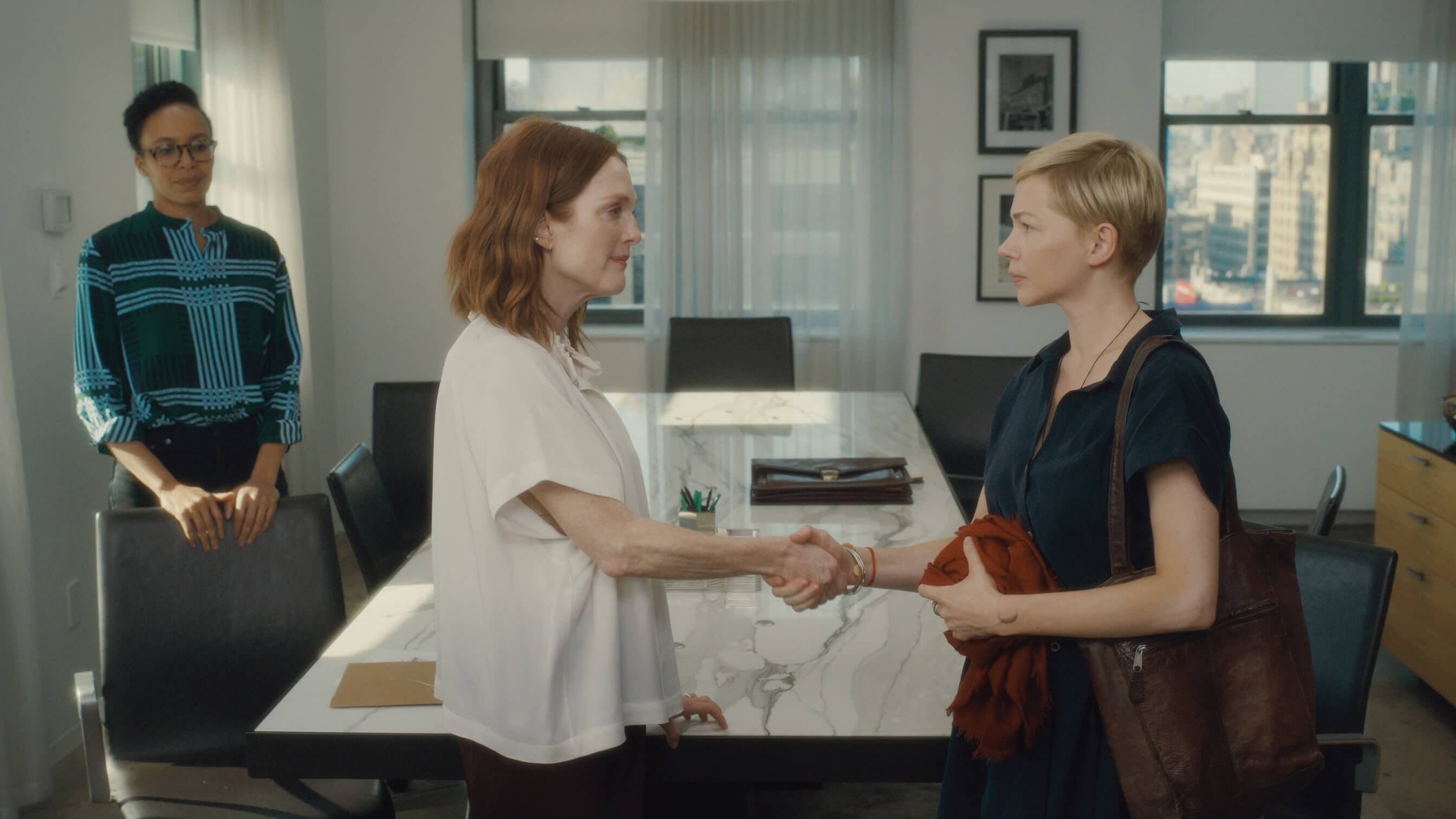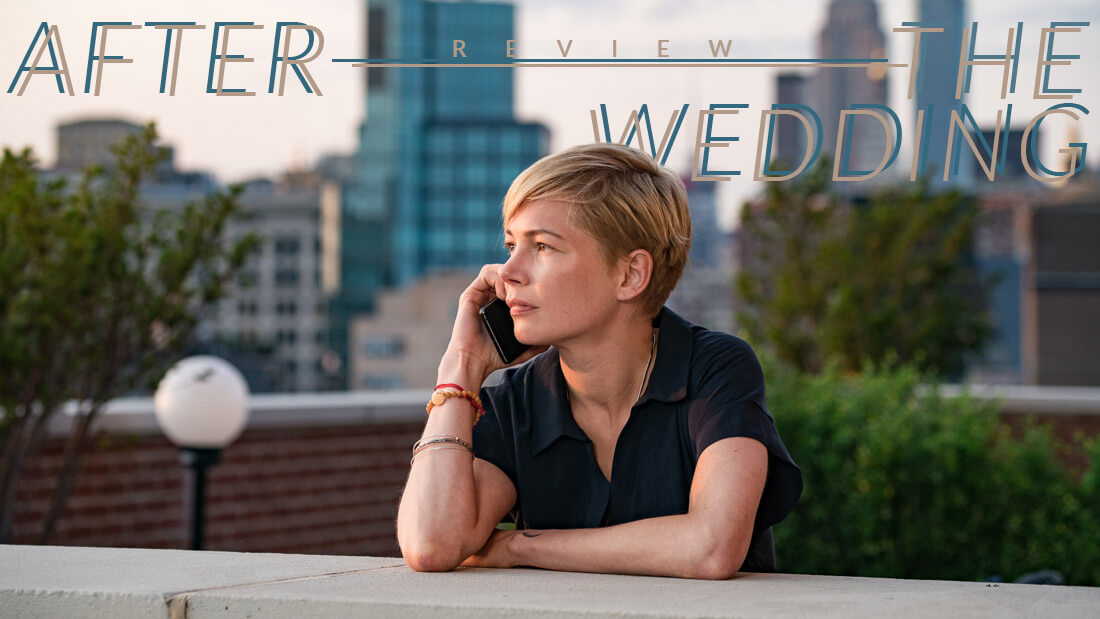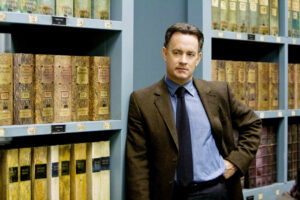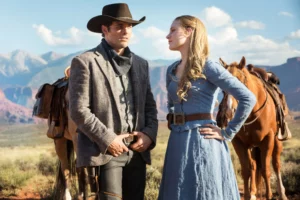At the Sundance Film Festival in London, we had the chance to see the premiere of “After the Wedding,” Freundlich’s remake based on Susanne Bier’s Oscar-nominated Danish drama of the same name.
Title
“After the Wedding”
Behind and in Front of the Camera
The remake differs from the original Bier’s masterpiece for its female spirit, providing a different angle for a story that has moved thousands of people all around the world.
In the lead roles, we find Michelle Williams in the shoes of Isabel, a young woman who manages an orphanage in India, and Julianne Moore, who puts her A-game in the role of Theresa, a mom-in-career and loving wife with a secret. Completes the trio of protagonists Abby Quinn as Grace, Theresa’s stepdaughter whom the woman has raised after meeting and falling for Grace’s father, Oscar (Billy Crudup).
To use Moore’s own words, “it is a movie where nobody’s a villain and nobody’s a hero.” It’s about multi-faceted people, women who struggle and try to maintain their balance: they fight teeth and nails to keep what they have built, while (especially in Isabel’s case) staying true to themselves. In the renewed and gender-swapped 2019 version, director Bart Freundlich wrote and directed the movie (though based on the original screenplay by Bier).
Freundlich is known for movies such as “The Rebound,” “Wolves” in 2016 and his breakthrough “The Myth of Fingerprints,” dated back 1997, which was presented at the Sundance Film Festival and stars Julianne Moore, who is also Freundlich’s spouse, as the protagonist Mia.

Who’s Got the Typewriter
The original screenplay comes from Susanne Bier’s 2006 Danish drama “After the Wedding,” “Efter Brylluppetin” in the original title.
Susanne Bier did not only direct but also wrote the screenplay. The movie (starring Mads Mikkelsen and Sidse Babett Knudsen) met critical and popular success, being nominated as #4 in the Times list of Top 10 Movies of 2007. It gained a lot of fans worldwide and was nominated for the Academy Award for Best Foreign Language Film, even though it didn’t win (Bier did win the Best Foreign Language film in 2010 though, with “In a Better World”).
Even though it’s a remake, “After the Wedding” raises the emotional stakes and is able to move and engage even those in the audience that know the original movie by heart. The gender swap really offers a new narrative key view on life and loss to “After the Wedding,” allowing Freundlich to explore the potential of female friendship, camaraderie and rivalry.
What to Know (ABSOLUTELY NO SPOILERS)
Here the two central male characters, originally played by Mads Mikkelsen in the role of Jacob, who needs to fly to Copenhagen to meet the investor Jørgen, played by Rolf Lassgård, gender-swap into women: however, just like in the original version, we find the contrasting dynamic between the idealist and the millionaire. Isabel (Michelle Williams), is the co-founder of an orphanage in Kolkata together with her partner, Frank. When the possibility of a huge founding arises, circumstances force Isabel to abandon temporarily her beloved kids and her simple, in-touch-with-the-earth way of life and to travel to New York to meet a potential millionaire benefactor, Theresa. The meeting falls a day before the wedding of Theresa’s daughter, Grace, (Quinn) and Isabel finds herself frustrated by Theresa’s distracted attitude, being the woman too busy with the wedding to pay attention to anything Isabel is saying.
So, much to her unhappiness and while growing more and more uncomfortable in New York, Isabel is unexpectedly invited to the wedding: this awakens her past, and forces Williams’s character to confront all the things she left behind.
What started as a business trip forced upon the orphanage becomes a bonding experience and emotional travel for both Theresa and Isabel – not always an easy one, but of the kind that keeps the viewer glued to the screen, sucked up in the whirlwind of secrets, human differences and emotions that is “After the Wedding.”
What You’ll Need
You don’t have to know the original movie, albeit it’s a classic worth of attention and a masterpiece, to enjoy this remake.
“After the Wedding” carries the weight of the narrative on its own shoulders together with the added emotional value provided by the plot twists and the moving performances of the leading ladies – and, unlike many remakes, it won’t make you run to the original version to see if that, at least, was good. It’s a perfectly compelling standalone and a good story on itself which, in this remake-spree era, is not always the case. However, if you want to have a look at the original “After the Wedding” first, it won’t spoil you too much and, on the contrary, it will provide a delightful discussion ground for two movies that, despite the shared guidelines, provide two different approaches and point of views on humanity and family dynamics.
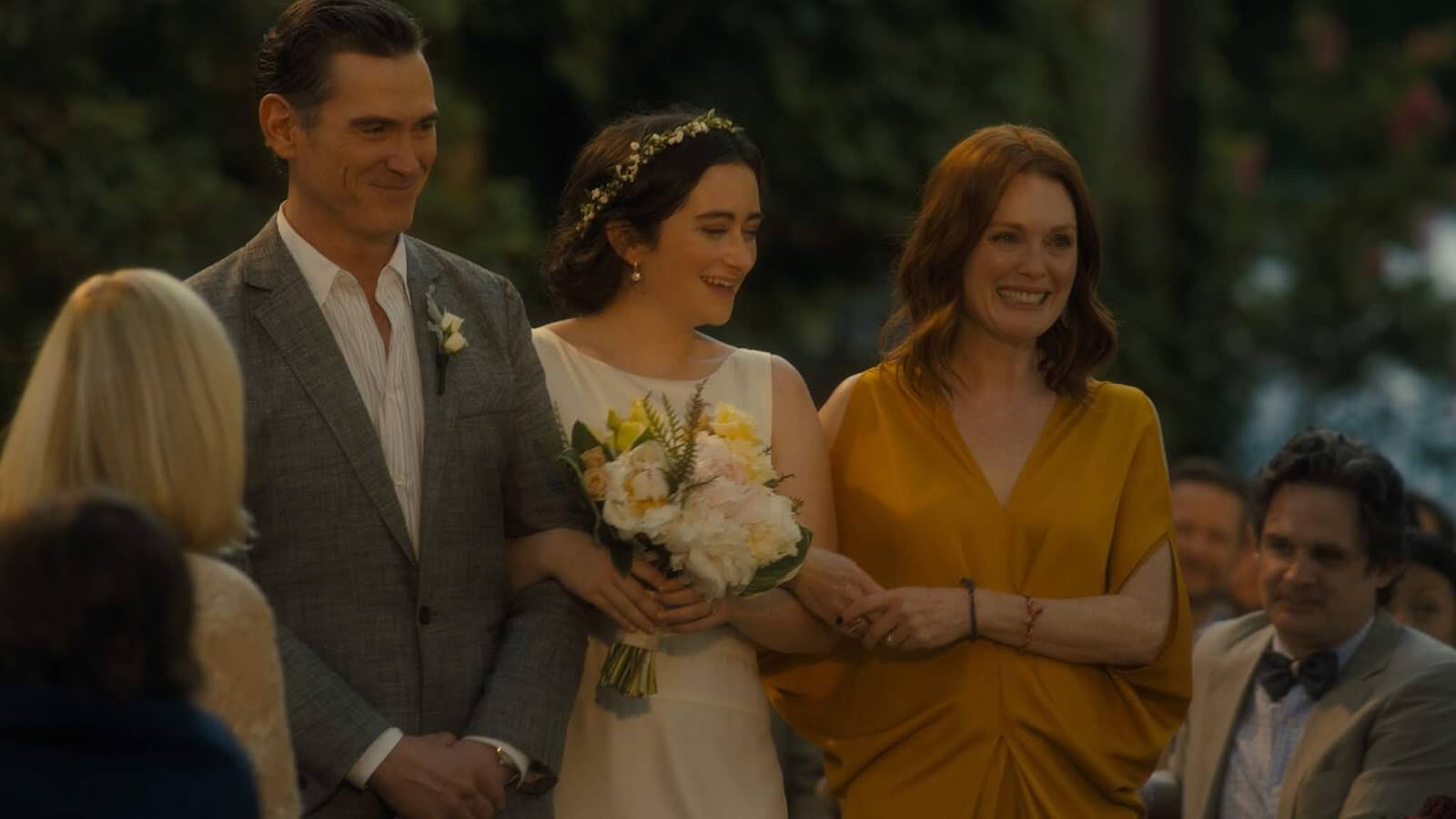
What They Say
On the making of “After the Wedding,” Freundlich revealed to The Hollywood News that they didn’t see the reason to remake such a great success as it was, so they decided to play with the genres and add a new touch to the narrative, “We started playing around with the idea of switching the genders, which seemed like a typical Hollywood pitch, [but] what was interesting about it for this film is that it modernized it, in a way.”
He explains that, even though many things were new and fresh in Bier’s movie in 2006 (such as an emotional closed off billionaire), they had become something as-seen-before through the years.
Regarding working with Julianne Moore on such an emotional role, Freundlich said: “This one [the role of Theresa] spoke to her because I think she wants to feel like there’s something in a character that she hasn’t explored before, and there was something in this character that really was of interest to her.”
They also watched the original movie together and Julianne, reportedly, said she would love to play a part such as Lassgård’s.
At the time, there was still no discussion about a gender-bent version.
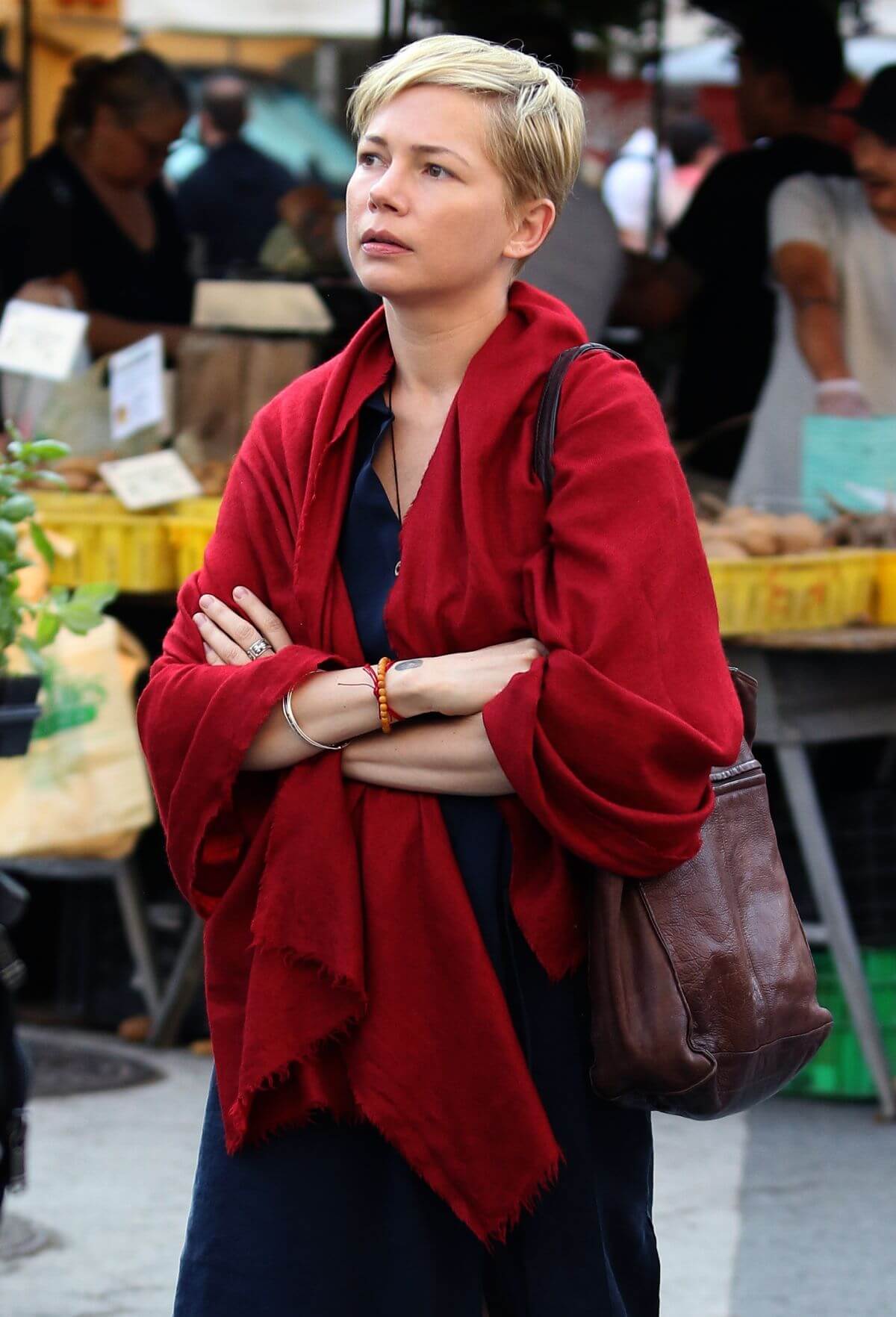
On her character and her relationship with Williams’s character, Isabel, Moore said to Vulture: “You can feel the size of her life and her engagement in it. And in order to move forward, she needs to engage this other woman in a very difficult way. So their relationship and the lengths to which they go to — not dominate each other, but it’s a power struggle. You never see that. […] You’re almost always allies or they’re arch enemies. But two fully formed protagonists in a power struggle is so rare.”
One Last Thing…
The glossy atmosphere, aided by Theresa’s (Julianne Moore) family wealth is crafted with mastery and attention to details, and there is a sense of polish and refinement in every scene. The director’s usage of the camera is clean and beautiful, with no smudges nor rush, leaving the leading-ladies’ performances and emotional lines to sink in and deploy all their power: a great opener for Sundance Film Festival 2019.
